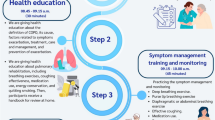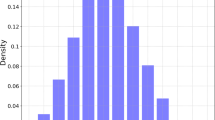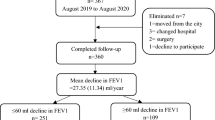Abstract
Background:
Response rates to postal questionnaires have been falling in recent years. Aim: To examine factors affecting the response to five postal respiratory questionnaire surveys. Design: Cross sectional study. Setting: General practice.
Method:
Five surveys were conducted in all adults registered with two UK generaiapctices using an ECRHQ-based questionnaire, with two reminders at 4-week intervals.
Results:
Response rates declined over time (1993 — 71.2%; 1995 — 70.5%; 1999 — 65.5%; 2001 — 65.3%; 2004 — 46.9%). Age and gender of non-responders were available for 2001 and 2004: responders were older (mean 48.8 years vs 37.6, p<0.001; 50.5 vs 38.8, p<0.001) and more likely to be female (54.9% vs 44.9%, p<0.001; 55.3% vs 48.5%, p<0.001). The response rate was increased by 18% (2004) and 23% (2001) by the use of two reminders. Early responders were older and more likely to be females, but were less likely to smoke than late responders after reminders. There was no important association between respiratory symptoms and associated feature prevalence and stage of response.
Conclusion:
Declining response rates may represent reduced motivation and reluctance to share personal information. Qualitative exploration of late/non-response could help reduce bias when planning and analysing such surveys. The use of two reminders is an important factor in improving response.
Similar content being viewed by others
Article PDF
Author information
Authors and Affiliations
Corresponding author
Ethics declarations
Competing interests
M Hazell has received a fee from Boehringer Ingelheim for speaking and travel grants from GSK, Boehringer Ingelheim and MSD. J Morris has no conflicts of interest.
Rights and permissions
About this article
Cite this article
Hazell, M., Morris, J., Linehan, M. et al. Factors influencing the response to postal questionnaire surveys about respiratory symptoms. Prim Care Respir J 18, 165–170 (2009). https://doi.org/10.3132/pcrj.2009.00001
Received:
Revised:
Accepted:
Published:
Issue date:
DOI: https://doi.org/10.3132/pcrj.2009.00001
This article is cited by
-
Ethnicity and neighbourhood deprivation determines the response rate in sexual dysfunction surveys
BMC Research Notes (2015)
-
Longterm follow-up in European respiratory health studies – patterns and implications
BMC Pulmonary Medicine (2014)
-
TargetCOPD: a pragmatic randomised controlled trial of targeted case finding for COPD versusroutine practice in primary care: protocol
BMC Pulmonary Medicine (2014)
-
What Patients and Surgeons Should Know About the Consequences of Appendectomy for Acute Appendicitis After Long-Term Follow-Up: Factors Influencing the Incidence of Chronic Abdominal Complaints
Journal of Gastrointestinal Surgery (2013)
-
Using incentives in surveys of cancer patients: do “best practices” apply?
Cancer Causes & Control (2012)



